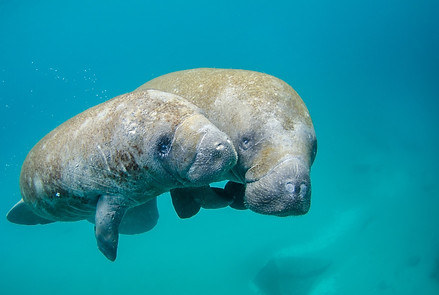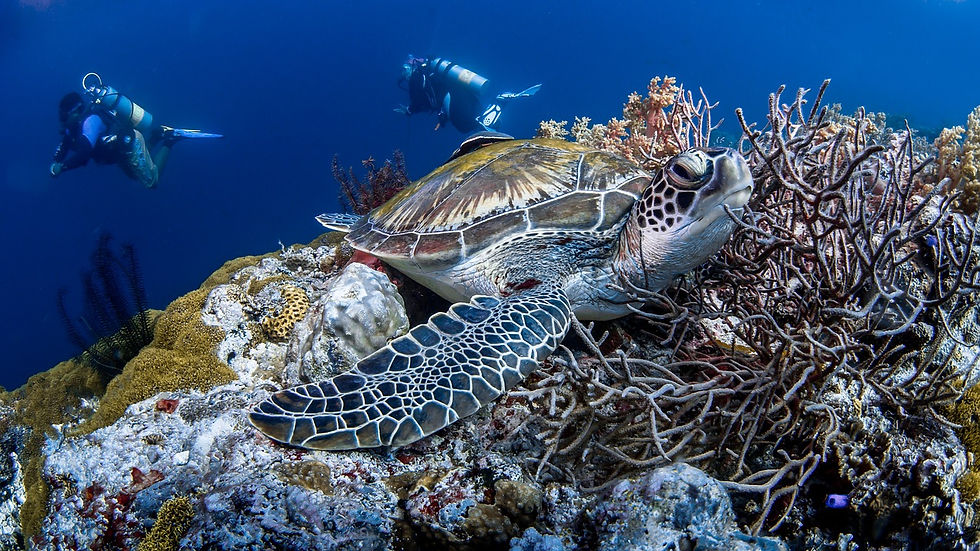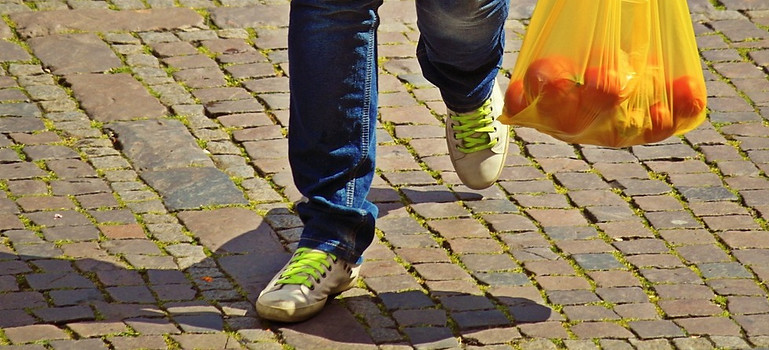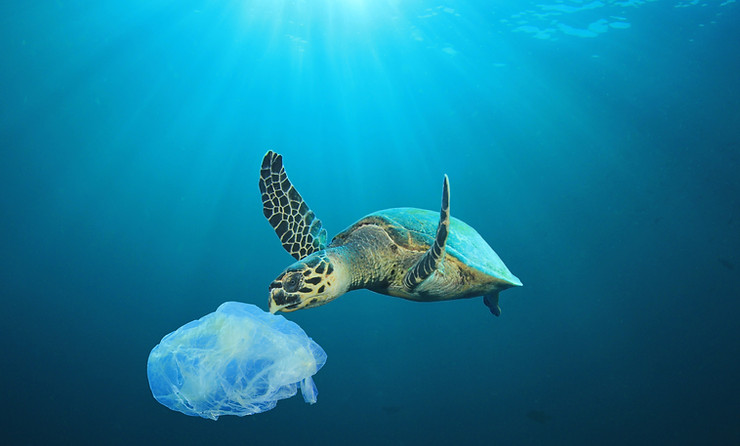
Plastic Pollution
Protecting Florida Beaches
Protecting our oceans means protecting the organisms that live there, but also ourselves. Oceans make up 70% of our world, so when they're negatively impacted, so are we. Banning single use plastics is a great start to protecting our oceans. Start the change today for a cleaner future.
Microplastics: What are They?
People are exposed to microplastics through everyday household and commercial products. They can come from the breakdown of larger plastics, but many are purposefully made for health and beauty products. They are classified as tiny pieces of plastic less than 5 millimeters long. Microplastics can come in many different types and can be cubic, linear, or circular. These plastics can also be carriers for harmful heavy metals. Additionally, when exposed to seawater for long periods of time, harmful chemicals can be secreted from the plastics themselves.
Not only are these pieces of plastic harmful to the ocean but they also cause adverse health effects in humans. According to a peer reviewed study done by the National Institutes of Health, humans can digest them, inhale them, or suffer from direct contact. Microplastics have been shown to cause endocrine system failures, which can lead to serious afflictions like cancer and reproductive harm. Experiments even show the possibility of the transfer of microplastics through generations, along with the passing of microplastics through consumers and producers.

Health Effects
When ingested:
Microplastics have also been shown to affect the digestive system of the body. Microplastics can inflame and disrupt the areas of the body where they are found, leading to physical as well as chemical complications. With chemical imbalances, people can suffer nausea, vomiting, diarrhea, abdominal pain, and bloating. This is due to the presence of microplastics changing the makeup of the human gut.
When inhaled:
Microplastics can disrupt the respiratory system through abrasion which causes coughing, sneezing, and difficulty breathing. Also, they can lower blood oxygen levels leading to dizziness and fatigue. They also carry the harmful toxin– PS– which is known to increase the risk of developing chronic obstructive pulmonary disease– a very serious condition.
In your system:
Microplastics also disrupt hormones, specifically the increase, decrease, release, production, and blockage of them. This leads to the endocrine system developing different disorders, being metabolic based, developmental, and reproductive. Also, recently a study found the presence of microplastics in the placentas of six different pregnant women.
There is still a great deal of research to be done on microplastics. A lot of health effects happen over long periods of time and new research comes from this. Therefore, years from now, microplastics could be found to be a lot worse than originally thought. This is why microplastics need to start being reduced right now. This change can start at a small scale, meaning it can start with you. Choose alternatives to everyday plastic items, vote for increasing bans, and help protect your health.
Animals at Risk
The most well known social action for sea animals was the social media trend consisting of the saying “save the turtles” from 2019 to 2021. This movement was started to encourage the use of metal straws over single use plastic ones. It was mainly spread by Generation Z over popular social media apps like TikTok and Instagram. It was started after a video of a sea turtle with a straw caught in its nose was published.

The video shows a graphic removal of the straw, urging people to reconsider their use of plastic straws. The movement also branched out into reusable water bottles. This social media action was very well known by younger generations and reached a wide audience, spanning almost two years. It was so prevalent that brands came out with their own lines of metal straws, and brands like Hydro Flask gained a lot of popularity for their water bottles.

Laws in Your Area
If you’re still on the fence as someone who uses plastic bags, there are many states that are shown to have positive opinions on the bans. In fact, according to a local Florida organization, Plastic Free Florida, in Washington, 83% of D.C. residents and 90% of D.C. businesses support laws on plastic bag bans or are neutral. Currently, states like California, Oregon, New York, Vermont, Maine, Connecticut, and Delaware all have state wide laws that reduce the number of plastic bags used. These states are all great examples of what the rest of the United States could adopt in order to reduce our plastic output. It’s important to know the current laws and policies in your area. In Florida, there are preemption laws preventing bans on plastic bags. These are state made laws that keep local governments from making their own laws on the matter at hand. However, there are still things as a citizen that you can do.

One of the most helpful things for a citizen to do is to be aware. Be aware of the laws in your area, but also of what they mean and any changes that might arise. As a voter, it's good to keep up and know if an upcoming politician is for plastic bag bans and wants to change the current state of things. It’s good to spread this awareness too and encourage others to consider voting environmentally friendly. It also helps to spread the word through events and advocative gatherings.
If you currently have a government official in office and want to do something about bans, it is possible to reach out to them. At the county level, it would be helpful to get in contact with your lawmakers and petition for bans in your county. There are legislative hearings citizens can go to and speak at, ways to lobby politicians, and even addresses to write them letters or emails. It’s important to be heard as a citizen, and local governments make this pretty accessible when you look. Citizens might have to fill out forms before seeing lawmakers face to face, but the choice of emailing them is very straightforward.
It’s important to be heard and to be informed of your opinions when it comes to advocating for laws in your county. Make yourself heard and seen when it comes to things like plastic laws, as it helps both you and your environment.

Alternatives to Single-Use Plastics
The Impact
Things like plastic straws and plastic bags can easily be replaced by better options. These sorts of plastics are used in abundance and then thrown out after one use. Plastic bags are hard to recycle, as they clog recycling equipment and contaminate other recycled items.
Plastic Straws
Plastic straws can be easily replaced by their environmentally friendly counterparts. Metal and glass straws both allow for fun designs and double in use for cold and hot beverages. When paired with reusable water bottles, these not only save the environment, but they can save you money too!
Plastic Bags
Bringing your own reusable bags to shop with you is an easy way to help the environment. Many grocery stores offer their own to purchase at the register and it can even be a fun way to support your favorite businesses.



Take the time today to preserve tomorrow.
By donating to causes dedicated to helping the oceans and beaches, you can make a difference. If you can afford to, there are many organizations that raise funds from the public to further their clean up projects. The Ocean CleanUp group tackles the floating plastic trash in the Pacific Garbage Patch by using nets to extract it and computational modeling software to detect trash hot spots in the ocean. They take the initiative to clean up rivers as well, stopping trash before it gets to the ocean. They offer spaces to donate, buy merch dedicated to their cause, and learn a bit more about plastic waste.



